Should I stay or should I go? A ‘Chernobyl-like defect’ in our election system might give Trump a choice
By Dan Drollette Jr | October 28, 2020
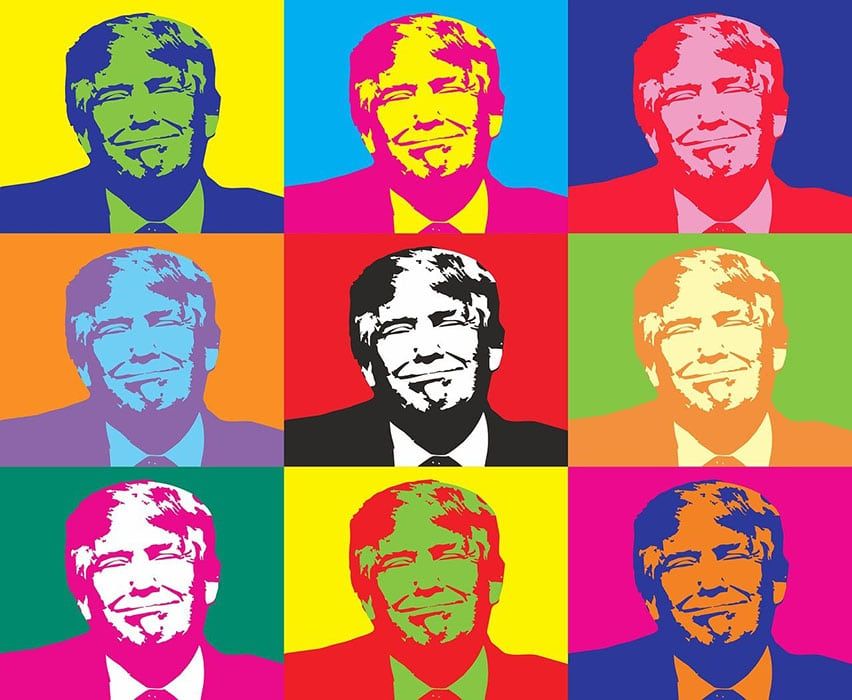 Image courtesy of Tibor Janosi Mozes/Pixabay
Image courtesy of Tibor Janosi Mozes/Pixabay
In the summer of 2020, Lawrence Douglas—a professor of law, jurisprudence, and social thought at Amherst College—published a book about what he calls his “thought experiment” on what might happen if an incumbent president simply decided not to acknowledge electoral defeat and oppose the peaceful transfer of power. Douglas wanted to examine how well our system of democracy in America was prepared deal with such a theoretical possibility.
The short answer can be seen in the book’s title, “Will He Go: Trump and the Looming Election Meltdown in 2020.”
Douglas says that an unusual constellation of forces—such as the need to rely heavily on mail-in ballots because of the Covid-19 pandemic; political divisions in the key swing states of Michigan, Wisconsin, and Pennsylvania; and a hyper-polarized Congress—could work together to turn Trump’s defiance into a crisis of historic proportions. Or, as he phrased it in a piece for The Guardian: “[B]uilt into our system of presidential elections is a Chernobyl-like defect: placed under the right conditions of stress, the system is vulnerable to catastrophic breakdown.”
In this interview with the Bulletin’s Dan Drollette Jr, Douglas explains how his concerns emerged, the innate structural problems of our presidential election system, whether Trump is the cause or the effect of the present situation, what the best solutions might be, and what this election could mean for dealing with existential threats to our democracy and our planet.
(Editor’s note: This interview has been condensed and edited for brevity and clarity.)
Dan Drollette Jr: Your book seems to be in real demand right now. The New Yorker gave it a favorable review earlier this summer, and I saw an article about it in the Boston Globe a week ago—under the title “Prepare for the presidential election to end in disaster.” Is that headline a fair summary of your findings?
Lawrence Douglas: Well, I’d say that the book examines how well our system of constitutional and federal law is prepared to deal with an incumbent in the White House who is not willing to acknowledge electoral defeat. And the short answer is: “It’s not well prepared at all.”
Drollette: How much of that is attributable solely to Donald Trump, and how much is due to structural problems baked-in our system? In other words, is Trump the cause or the effect?
Douglas: I would say it’s kind of neither. I think the book—which started out quite a while ago, as a sort of thought experiment—makes the case that our system of presidential elections is archaic, Byzantine, anti-democratic, dysfunctional, and arguably dangerous. And that we have been spared electoral meltdowns in the past through a combination of luck and the character of people seeking higher office.
We went through the entire 20th century without the loser of the popular vote winning the presidency. But it’s happened twice since the year 2000—and we’re barely into the 21st century.
Even if Donald Trump somehow manages to win the Electoral College this time around, it’s almost certain that he will lose the popular vote again. With that kind of outcome, we can certainly say the system is anti-democratic or un-democratic.
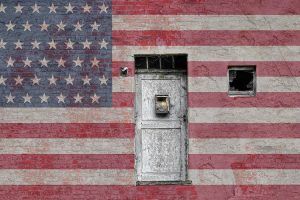
Drollette: Why?
Douglas: Our presidential election system is very vulnerable to failure, due to the out-sized weight it places on a handful of swing states. Which means that if you’re interested in trying to contest an electoral defeat, it’s much easier to do if your margin of defeat is 10,000 votes or less in a swing state, as opposed to contesting 3 million votes nationwide.
In a sense, our system is almost designed for somebody who wants to play constitutional brinkmanship with electoral results.
Drollette: What possible solutions are there? For example, in Australia they have compulsory voting: You vote or pay a fine. I got to see compulsory voting in action first-hand during a nationwide election during the four years I was living and working down-under; from what I could tell, the Australians seemed pretty pleased with their system. They told me compulsory voting is one sure-fire way to get everyone involved—the Aussies average 90 percent voter participation, compared to an average of 55 percent in presidential elections here—and that compulsory voting also has the benefit of ensuring that every demographic is represented. Would that work here? Or is it too radical?
Douglas: I think some solutions are more difficult to attain than others—though they would be very helpful if we could get them.
One is abolishing the Electoral College, which would require a Constitutional amendment. And if there’s one part of our beloved Constitution as dysfunctional as the Electoral College, it’s the process by which the Constitution is amended—it’s just needlessly difficult.
Another possible solution is the national public vote initiative among states, in which states pledge their Electoral College votes to the nationwide popular vote winner and not to the statewide winner. The idea is that if you can get states equaling 270 Electoral College votes to sign on, then you’ve made an end-run around the Electoral College system.
Of course, even that would be subject to legal challenge.
But even though these things would remain open to contestation, I would love to see people try them.
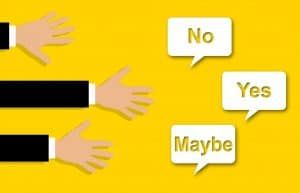
Drollette: Are there other, less drastic solutions?
Douglas: Just improving and creating national standards for all election precincts would be helpful. It would secure our system and make it less vulnerable to fraud and allegations of fraud.
As it is now, we don’t have a nationalized system of elections; everything is left up to states and counties—so as a result, we essentially have something like 10,000-plus electoral precincts.
Drollette: Sort of like 10,000 separate elections?
Douglas: Well… kind of. And the problem with such a decentralized system is that if you have even one county with a vulnerable electoral system, then the entire national election can be cast into doubt.
So, an entire election can turn on, say, a single county in Florida.
Drollette: Such as Palm Beach County in Florida in 2000?
Douglas: Right.
Drollette: You said even baseless allegations of fraud are a problem…
Douglas: It’s extraordinary to have a president of the United States tell the American people that our electoral system lacks integrity; that the only way for the system to prove otherwise is for him to win. He really has created this completely toxic narrative, where any loss becomes kind of de facto proof that the election has been rigged.
It’s kind of a “heads I win, tails you lose” proposition.
And he first said this back in 2016; but back then he just didn’t have a convenient device to focus all his conspiracy theories on. Now he just happens to have the mail-in ballots. Add in the fact that they’re going to break heavily in Biden’s favor, and that explains why mail-in ballots have emerged as his bête noire this election.
Drollette: How does anyone really know for sure that mail-in ballots mostly favor the Democratic Party candidate?
Douglas: Well, for one thing, Pew did a poll of prospective voters, and it estimated that less than 20 percent of Trump voters intend to vote by mail-in ballot. And The Atlantic said that polls show that Biden voters are three-to-four times more likely to vote by mail than Trump voters, as did the Wall Street Journal.
So, taking all these factors together, mail-in ballots are much more likely to favor Trump’s opponents, so he’s taking steps in advance to discredit them—a preemptive strike, if you will.
Drollette: Why the disparity between the two sets of voters?
Douglas: A good part of the reason for this has to do with the coronavirus: Trump supporters and Biden supporters take the health risks associated with in-person voting differently. We’ve seen that Trump supporters are less concerned about practicing social distancing. And his supporters tend to be from rural areas, while Biden voters tend to be in more densely populated urban areas where the health risks associated with in-person voting are just simply higher.
Drollette: I can’t get over how politicized simply wearing a mask has become.
Douglas: It’s crazy. What a crazy country we’re in right now.
Drollette: Which reminds me: What do you think about Trump’s refusal to say he will commit to a peaceful transition of power? Have we ever had anything like that, in our country’s history?
Douglas: It really is unprecedented.
We’ve had presidents like Andrew Johnson, who narrowly escaped from being removed from office, and who then boycotted Ulysses S. Grant’s inauguration in retaliation. That wasn’t what you would call a gracious concession.
But we’ve had nothing like this—someone outright refusing to commit to the peaceful transfer of power.
However, as I pointed out in the book, our constitution and our system of federal laws don’t secure the peaceful transfer of power. They presuppose it.
Drollette: Meaning…?
Douglas: Meaning they assume it’s going to happen.
And it is really hard to design a system to safeguard itself in every way from every possible threat; ultimately, institutions are only as strong as the people occupying them.
If you happen to have the most powerful person in the world not buying into the norms of the constitutional democracy that he’s meant to protect, that’s a problem.
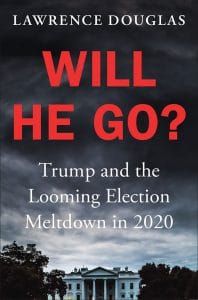
Drollette: We’ve talked a little about the virus and its effect on the election. What about the opposite? What does this election’s outcome mean for dealing with the virus? What does this election mean for dealing with existential threats like climate change, emerging diseases, nuclear weapons…?
Douglas: I think a Trump victory would be catastrophe for the nation and for the world. I hate to put it so dramatically, but I really do think so.
Just think of his incredibly reckless response to climate change so far; his denial of basic science, his reversal of all these environmental policies put in place by Obama to at least try to get some preliminary control over this one problem.
It’s not like we have a lot of time. There are feedback loops being established in the climate, and once you hit a tipping point with climate change, that’s it.
The same is true with nuclear proliferation—it would all continue to get worse under a Trump second term.
And we’ve also seen an epic failure in leadership with regards to this pandemic.
But ironically, if it weren’t for the pandemic, it’s possible Trump would be gliding his way to reelection, based on his unfounded claims about the economy and the stock market.
Drollette: How much of what is happening in American politics today is due to Facebook, Twitter, and disinformation campaigns?
Douglas: We were talking earlier about whether Trump is a cause or an effect. I think it’s impossible to imagine someone like Trump in the media environment of a generation ago: pre-Facebook, pre-Twitter.
We now inhabit a siloed media universe, with Sean Hannity and Rush Limbaugh and all these right-wing talk radio and talk television shows. And this is exacerbated by social media platforms like Facebook, which permit this kind of alternative media: Misinformation just echoes back and forth, ricochets, and builds in volume.
A constitutional democracy presupposes that people have access to reliable information. Because without it they can’t test the claims coming from their elected leaders, and then they can’t make informed choices as citizens.
Consequently, that siloed media universe has basically meant that we have tens of millions of Americans who are insulated from the sources of real information that they need to make informed choices.
Drollette: Do we need to return to the formal rules we used to have roughly 10 or more years ago? For example, in order to get their license from the Federal Communications Commissions, television and radio broadcasters used to have to adhere to rules such as the Fairness Doctrine, which required that opposing views be aired on whatever topic was being covered.
Douglas: Your guess is as good as mine. I think it would be wonderful to reintroduce something like the Fairness Doctrine or something like it.
But, you know, the Fairness Doctrine assumed that there was a scarcity of wavelengths on the television and radio spectrum.
And when all these different kinds of new technology came along, then suddenly the argument was: “Well, we don’t really need to police things as vigilantly.”
And maybe we’ve learned that, actually, in the absence of spectrum scarcity, we need to be more vigilant.
Drollette: Speaking as a graduate of journalism school, I think a key argument in favor of eliminating the Fairness Doctrine was that “There’s going to be so many more outlets, diversity of opinion is guaranteed.” But then it turned out that a lot of those outlets were bought up by the same handful of corporations. The New York Times just did a piece on a new conglomerate that tries to give the illusion of being 1400 small, independent, local newspapers, when in reality they’re all owned by the same large corporate entity, with a specific agenda—and that agenda is so-called “pay for play” coverage by public relations firms.
Douglas: It’s going to be hard to walk things back to the good old days; it’s hard to turn back the clock.
Drollette: Speaking of the passage of time, have things changed since your book was published on May 19? It’s almost November.

Douglas: When I wrote the book, it was more of a thought experiment, as I said. I was thinking “We have a guy who, in his last presidential debate in 2016, refused to say he would accept the electoral result. He’s now an incumbent president. What if he continues to hold on to that stance?”
So, I was kind of wondering, what kind of vulnerabilities the system had if he took that route.
Consequently, I wouldn’t describe myself as particularly prescient or anything. Reality somehow made my pessimistic imagination seem like it has some predictive powers. But it doesn’t.
Drollette: Are you more optimistic now?
Douglas: I remain concerned. But I do believe—or hope—that the best chance to avoid some real electoral mess this fall is to hand Trump a very clear and decisive defeat.
And that defeat can’t just be in the nationwide popular vote; it has to be in the Electoral College and the swing states too.
Not only that, but we have to know that defeat relatively soon after November 3—preferably on November 3 itself.
But it’s unlikely that will be the case, I’m afraid. There’s a strong possibility that the election could turn on some narrow margins in a handful of swing states. Or that Trump would muddy the waters enough that there would be doubt about the outcome in these few swing states…. That could happen even if he is swamped in the popular vote, losing by 5 million of the popular vote.
Drollette: Is there a possibility that he’d declare victory prematurely?
Douglas: Yes. The in-person votes could come in and be tallied, and then he’d say, “Oh, well, it’s 11:00 p.m., November 3rd. I won. No need to count the mail-in votes.”
I can easily imagine it. In fact, I predict he will do that. Assuming he has a lead on November 3rd, I believe Trump will try to leverage that lead to claim he’s been reelected.
He’s pretty transparent in his plans. He’s all but said that’s what he’s going to do. Remember, in the first presidential debate of 2020, moderator Chris Wallis asked: “Will you agree not to declare victory until there has been some kind of independent certification?” And Trump would not say “yes” to that.
Drollette: What’s the best we can hope for?
Douglas: To have him lose decisively and quickly. And not just in the popular vote, but in the Electoral College vote and the swing states.
Drollette: Even after a political defeat, can damage still be done between Election Day and Inauguration Day?
Douglas: The period between November 3rd and January 20th is definitely something to be worried about. I don’t want to get too apocalyptic, but I can certainly imagine civil unrest and possible violence in the streets. We’ve seen how Trump engages in dog whistle politics, where he sends out these messages to white supremacist organizations like the Proud Boys. So, yeah, there are all sorts of things he can do.
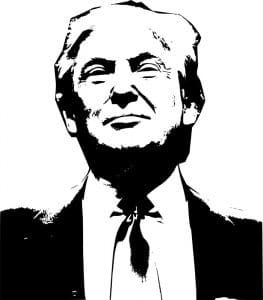
Drollette: What do you think he’d be like as an ex-president? Is Trump going to follow the norms of other ex-presidents, and largely stay on the sidelines?
Douglas: You know, one of the things that’s odd about Trump is that I don’t think he’s even really interested in political power, per se, in the sense of pursuing an agenda.
He doesn’t really have an agenda. What his agenda is, is his brand. And his brand turns on being in the public spotlight. So, I think that as an ex-president, Trump will continue to be a force of chaos and division in this country. It’s possible that he will work out a television network deal of some kind, with someone like Sean Hannity; I think there was even some talk about them doing that back in 2016.
And so Trump will be more than just a gadfly. He will be someone who will be out there, just to promote his own brand. He has so little respect for American constitutional democracy, so much contempt, really, for it. I don’t think that there’s anything that he would not do, if it benefits his brand.
So, I think he will continue. And one way to stay in the spotlight—particularly with his supporters—is to unrelentingly attack the state as corrupt, and the forces aligned against him as conspiratorial.
And the other thing is that if he loses this election, Trump could run again in 2024. So, he’d have an added incentive to keep his name out there. But let’s not think about that now.
Drollette: Any last comments?
Douglas: We started out by talking about Trump in terms of cause versus effect. But I think of Trump as being a lot like these California fires: You already had these local blazes here and there, but they were very localized. Suddenly this wind comes along, and it blows hot and it blows long. And these local fires suddenly erupt into this massive blazing conflagration.
That’s how I think of the Trump phenomenon.
And even if we somehow succeed at stamping out most of it, the landscape remains scarred.
So, it’s not like you can just kind of move right back in and things are the way they were. The scars will remain and it’s going to take a while to make us all healthy again—if we can get back to a healthier state.
Together, we make the world safer.
The Bulletin elevates expert voices above the noise. But as an independent nonprofit organization, our operations depend on the support of readers like you. Help us continue to deliver quality journalism that holds leaders accountable. Your support of our work at any level is important. In return, we promise our coverage will be understandable, influential, vigilant, solution-oriented, and fair-minded. Together we can make a difference.



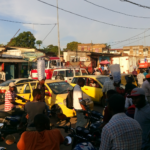












In the 2000 movie “Recount”, about the events of the 2000 election in Florida, they noted that Florida’s election system is borderline medieval.